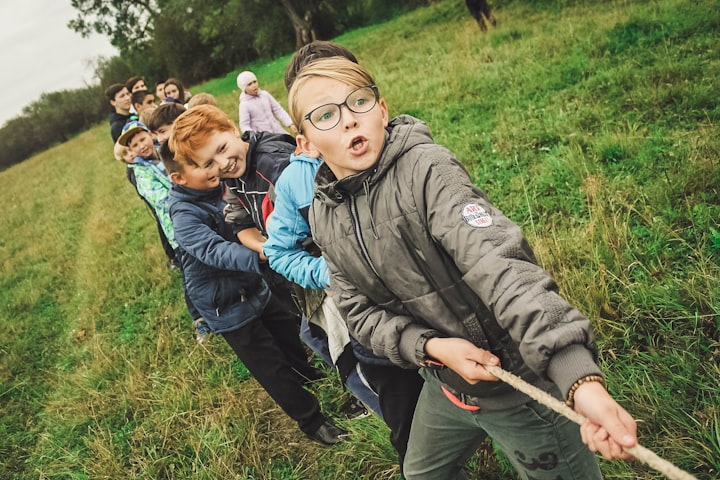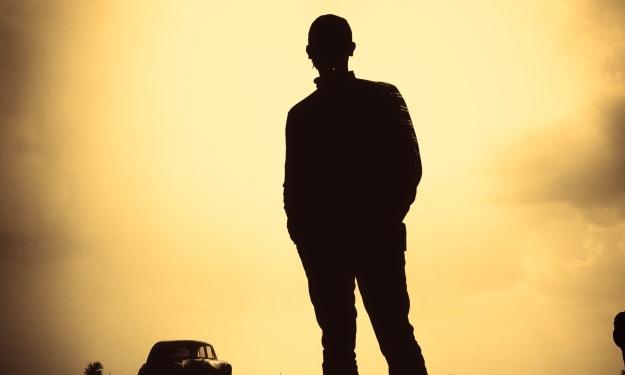The Great Neighborhood Debate of 1977
Which side are you on?

The Story
The summer of 1977 was the summer of the great debate in my neighborhood. I was 11 years old. The controversy: Rocky vs Star Wars. It was divisive. You were on one side of this proverbial fence or the other. And while it didn’t end friendships (because the bonds of summer bike rides and swimming and camping in the back yard were too strong) it did spawn many an argument.
Both are epic films, in their own way, each with surface appeal and deeper life lessons at their core. Both are feel good movies, albeit of different kinds. And both have persevered through numerous (arguably too numerous) sequels.
I was (ahem … am) firmly planted in the Rocky camp.
I fell in love with Sylvester long before the steroids gave him the physique of the later sequels, before he got all Hollywood, fur coat and bronze statue. Actually, I fell in love with the story behind the story. It was one of my first encounters with a real-life rags-to-riches plot.
And it pained me deeply that my best friend, Suzy (name changed to protect the innocent), was a Star Wars girl, with little use for my beloved drama. We spent some time that summer trying to convince each other the error of our ways, but in the end we agreed to disagree and get on with the business of summer.
But let me back track.
I first heard the story not in theaters, but in Ms. Fear’s English class. Each week we looked forward to the new edition of the Scholastic Weekly Reader. That one fateful day in class, the magazine featured a preview of the upcoming movie Rocky. It also told the rags-to-riches story of Sylvester Stallone. I was hooked. I remember struggling with the fact that Rocky did not win that match (remember this was before the 6 sequels) and then after much contemplation, learning the life lesson that there is more than one way to “win.”
Back in 1977 both of these films had an innocence, unencumbered by their later fame and sequels. But, corny as it is all these years (and predictable sequels) later I am still moved by the underlying core message, perhaps best summed up in a quote from the 6th film in the Rocky series ( Rocky Balboa), “But it ain’t about how hard you hit. It’s about how hard you can get hit and keep moving forward; how much you can take and keep moving forward. That’s how winning is done!”

Psych Pstuff’s Summary
As it turns out, these two films have been circling in each other’s orbits (pun intended) for decades-and not just in my neighborhood. While the original Rocky and Star Wars films premiered several months apart (December 1976 and May 1977 respectively), the seventh installments of each series debuted within a month of each other in 2015.
Back in the day of these iconic premieres, we were still going to theaters to watch movies. According to researchers, this represents a fundamentally different experience of the film. Psychologist Norman Holland notes four unique things that happen when we are “transported” in this way-when, as he puts it, “your brain is on movies.”
* You cease to be aware of your own body. You’re tired, you have a head cold, your back aches-you forget all that.
* You cease to be aware of your environment. You don’t pay attention to the people around you, the exit sign, your seat.
* You don’t doubt. You believe in unrealities. You simply accept what you’re seeing even if it’s totally improbable: hobbits, quidditch, Mickey Mouse, Spider Man. You have what Coleridge called the “willing suspension of disbelief.”
* You care. You feel real emotions toward things that you know perfectly well are not real, that are mere sparkles on a projection screen.
The secret of the lasting and universal appeal of movies like Rocky and Star Wars comes from that last notion. As we absorbed the experiences of the respective characters, we cared. We felt real emotions. We rallied for our heroes and wept at their defeat.
Why? Because we make judgments on reality in the thinking and decision-making portions of our brains-that seat of reason known as the pre-frontal cortex. But in our state of suspended disbelief, when our brain is on movies, we don’t judge. We accept. More importantly, we feel. And these emotions originate in a different, more primitive part of the brain, the limbic system. In this state, where we can experience a gamut of emotions with no real-world consequences, we can paradoxically enjoy even the unpleasant emotions of the drama-the sadness, the outrage, the defeat-all of which make the triumphs all the more … well … triumphant.
In our state of suspended disbelief, when our brain is on movies, we don’t judge. We accept. More importantly, we feel.
Certainly, the circumstances and environments of the two series were worlds apart (again, pun intended) but they encompass several key messages that ring strikingly familiar. These themes that speak universally to the human condition transcend the details of setting and even plot, sounding deeper refrains, are what make these very different films commonly appealing and paradoxically similar at the core level.
These common threads include:
* Fresh and innocent underdogs (Rocky, Luke) fighting seemingly more powerful, prepared and advantaged opponents (Apollo Creed, Darth Vadar)
* Confident, imposing, villainous archrivals (Ivan Drago, Boba Fett)
* Intimidating archrivals (Clubber Lang, Jabba the Hut)
* Apprentice learning from a master (Mickey Goldmill, Yoda)
* Motivational inspiration (The Eye of the Tiger, The Force)
Overall, both of these are “feel-good” movies, though, like real life, they each have their heart-poundingly fearful and devastatingly mournful moments. Despite these moments there remains an overarching theme of victory, though seldom in the traditional, expected way. There is a sense of conquest-of the enemies without and within. These are achieved through hard-fought battles and epic journeys present throughout both tales. In each we learn that, in the end, it’s not really all about the win but rather about pushing oneself beyond all odds and everyone’s doubt, to reach farther than you, or anyone else, thought you could.
Speaking about his premiere fight with Apollo Creed, Rocky says, “It really don’t matter if I lose this fight. ’Cause all I wanna do is go the distance.” Then after a knock down in the 14th round we hear trainer Mickey tell the battered and exhausted fighter, “Down! Down! Stay DOWN!” But Rocky gets up. The announcer marvels “What is keeping him up, Bill?”
In Star Wars too, this message of not letting impossible odds hold you back is repeated. C-3PO advises, “Sir, the possibility of successfully navigating an asteroid field is approximately 3,720 to 1.” To which Hans Solo retorts, “Never tell me the odds.”
In both we see the undefeatable core of resolve. Rocky says, “No, maybe I can’t win. Maybe the only thing I can do is just take everything he’s got.” Likewise, Obi-Wan Kenobi says, “Strike me down and I will become more powerful than you can possibly imagine.” Ever-wise Yoda puts it this way, “Try not. Do, or do not. There is no try.”
In the end, when all the window dressing is stripped away, at the core, where it really counts, perhaps these two series are not so different after all.
So, what exactly were we fighting about all those summers ago?

About the Creator
Donna L. Roberts, PhD (Psych Pstuff)
Writer, psychologist and university professor researching media psych, generational studies, human and animal rights, and industrial/organizational psychology






Comments
There are no comments for this story
Be the first to respond and start the conversation.